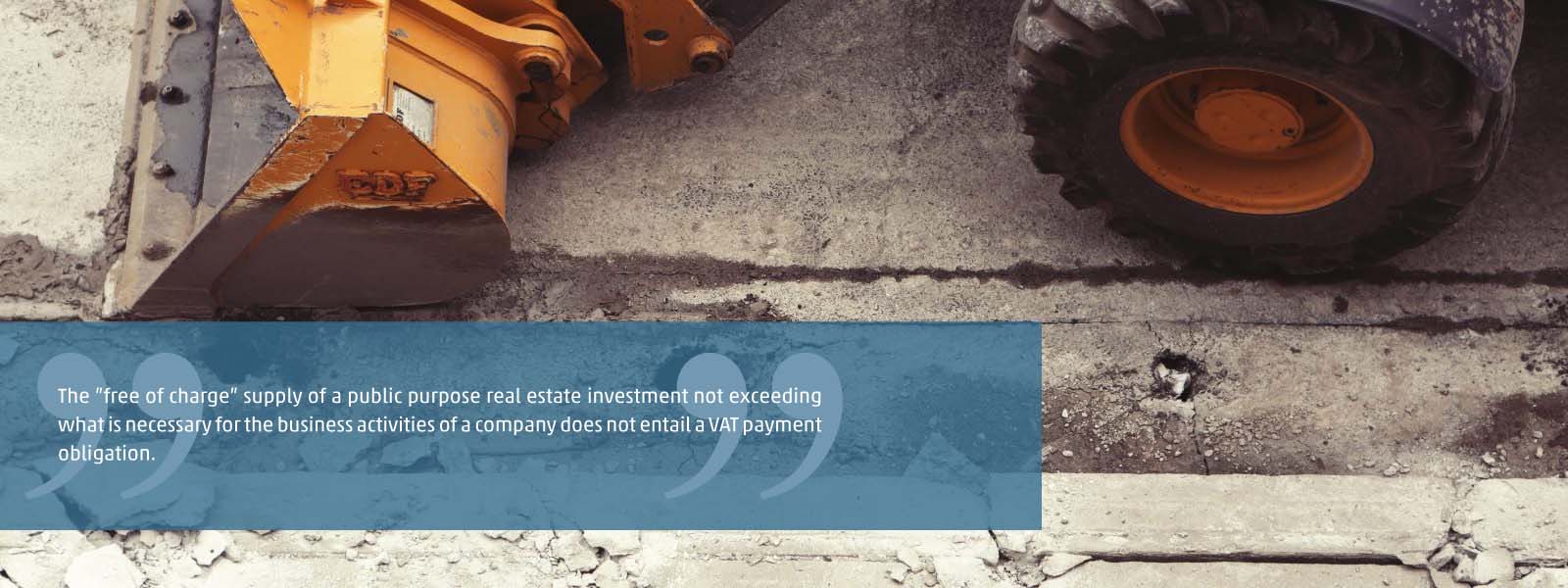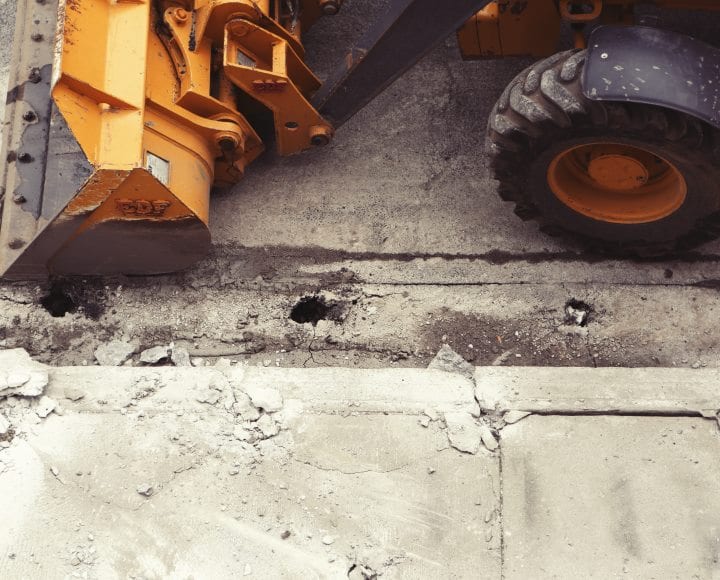A recently published judgment of the Court of Justice of the European Union may end a VAT issue which has been causing headaches for many years. The interpretation of the court may bring new rules for the VAT treatment of free of charge supplies of public purpose real estate investments (which usually takes the form of additionally required construction work).
What creates the trap in the case of free of charge supplies?
With real estate developments, the municipality in question often sets extra requirements for the investor. Such demands include the construction of roads and pavements leading to the building complex to be constructed, as well as nearby bus stops. These investments, which among other things offer easier access or an improvement in existing public roads, must be handed over by the contractor to the municipality free of charge. In this context, the spotlight turns to the deductibility of VAT of public investment costs together with the potential risk of a VAT payment liability as a result of delivering the development completed to the municipality free of charge. The Hungarian legal practice so far was fundamentally disadvantageous for taxpayers (at least as regards the issue of the payable tax), i.e. the supply was considered subject to VAT.
Background to the current case
In the case at hand, a German company received a permit to redevelop and operate a limestone quarry on the condition that access to the quarry is ensured by extending the public road belonging to the municipality.
The company obtaining the permit engaged a general contractor for the construction work, then deducted VAT related to the invoice of the contractor. The VAT deduction was rejected by the competent German tax authority, which then assessed a tax shortfall. Since the investment was supplied free of charge to the municipality, according to the German tax authority, the investor is not entitled to deduct the related input VAT.
Findings on the right to deduct VAT
The case was transferred up to the Court of Justice of the European Union, which made several important and forward-looking comments in connection with the right to deduct VAT on free of charge supplies.
- As a general rule for the given purchase transaction, there must be a direct and immediate link with the sales transaction entitling to VAT deduction. This is because the right to deduct can be exercised with the proviso that the given costs form part of the price of the taxable activities entitling to the deduction of VAT. The direct and immediate link must be established on an objective basis.
- In the above case, the extension of the road leading to the quarry enabled the truck traffic to and from the quarry, and by extending the road, the authorised contractor met its obligation towards the municipality with regard to the operation of the quarry. An additional argument in the court’s decision for the direct link between investment costs and taxable activity was that the cost of the investment is incorporated in the cost of output transactions performed by the company.
- Furthermore, the court considered that in the current case the road leading to the quarry was not handed over for public use by the investor. In fact, the purpose of extending the road was primarily to provide access to the quarry for the company itself.
- Therefore, the court considered that if an investment made for “public” purposes (to be handed over to the municipality) does not exceed what was necessary to allow the company to carry out its economic activity and the costs of this work are included in the price of output transactions, then the investor is entitled to deduct input VAT.
Findings on the VAT obligation for free of charge supplies
The court established the following with regard to the VAT obligation for the investment supplied free of charge to the municipality:
- According to the VAT Directive (as well as the Hungarian legislation), the application by a taxable person of goods forming part of his business assets for his private use or that of his staff, or the disposal thereof free of charge or more generally their application for purposes other than those of his business (where the related VAT was wholly or partly deductible), qualifies as taxable supply of goods.
- In the current case, the road was handed over to the municipality in a manner that ruled out not only its use for meeting the company’s own or its staff’s needs, but its application for purposes other than those of the business too. This is because the construction work served the (own) needs of the company operating the quarry (which the court elaborated on with regard to the VAT deduction right).
- Consequently, the free of charge construction of a public road for the municipality does not result in a VAT payment obligation.
So what happens now?
One of the most important conclusions to be drawn based on the decision of the court is probably the fact that input VAT is deductible on public purpose investments not exceeding what is necessary for a company to carry out its business activity. The other conclusion is that the free of charge supply of an investment meeting this latter requirement does not result in a VAT payment obligation.
Of course, all cases must be individually reviewed to decide what elements and what business background of an investment may comply with the system of conditions set by the Court of Justice of the European Union. Feel free to contact the tax advisers of WTS Klient Hungary if you need help from an expert.










